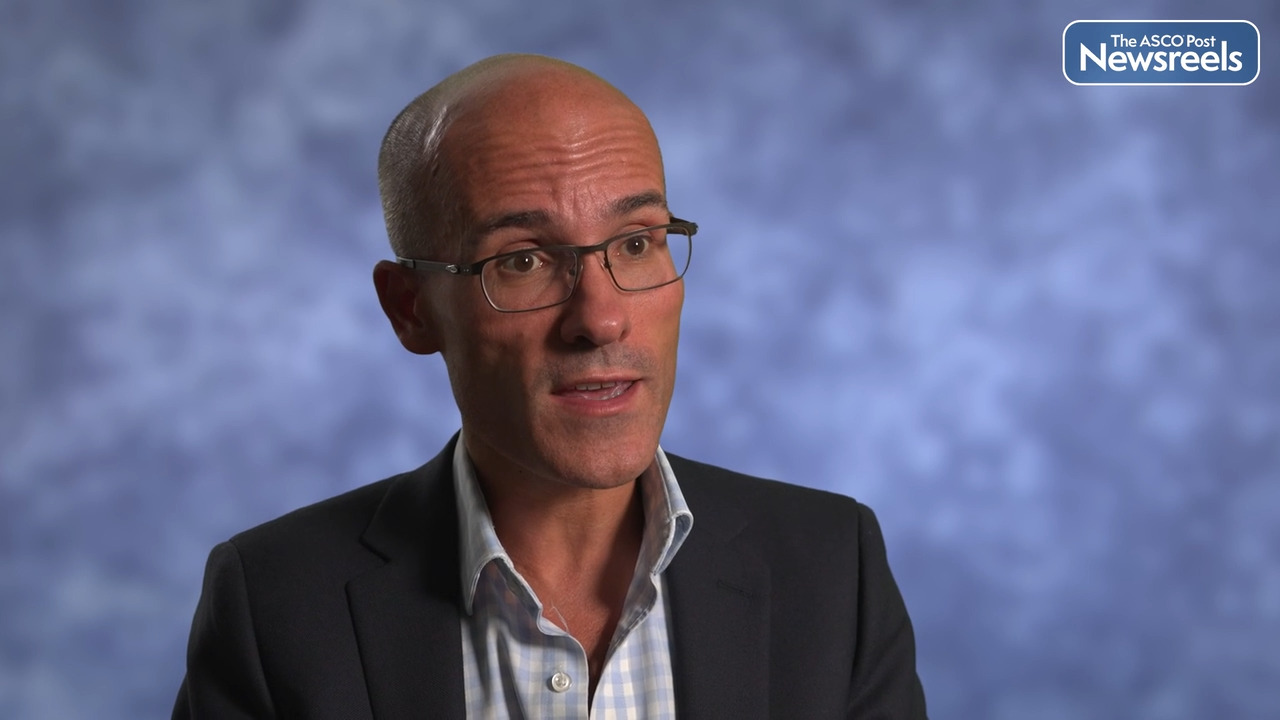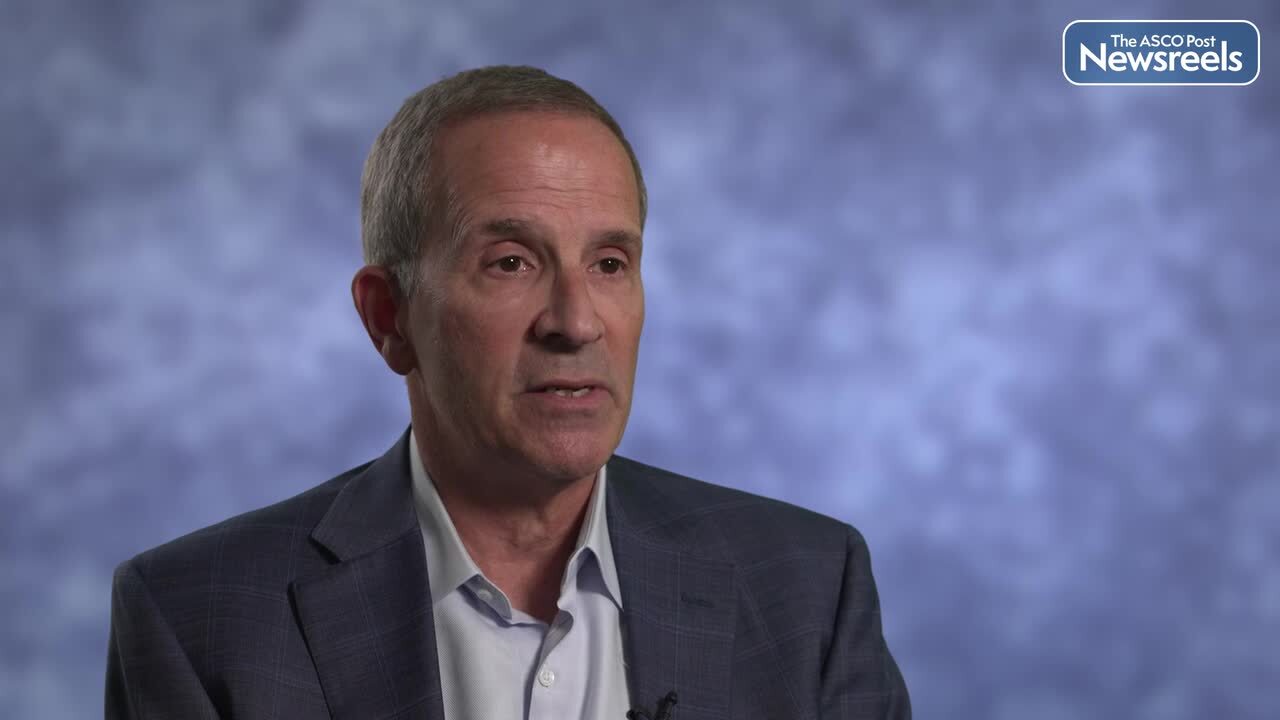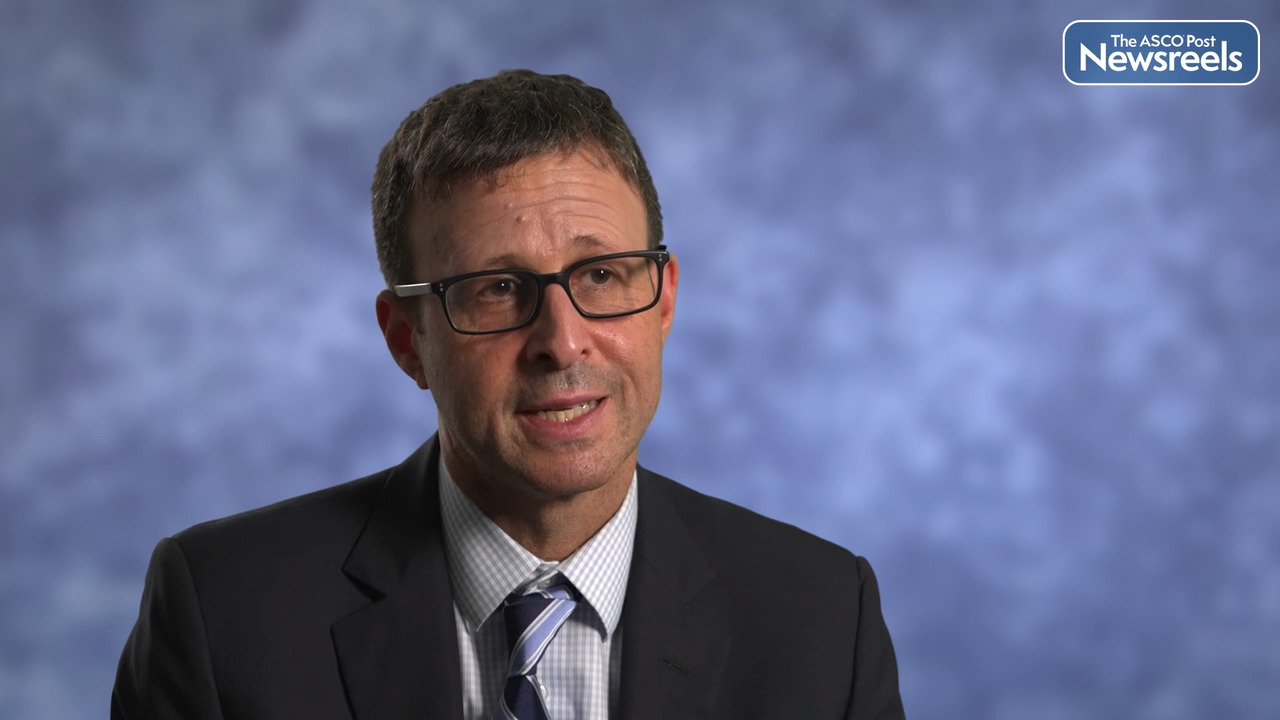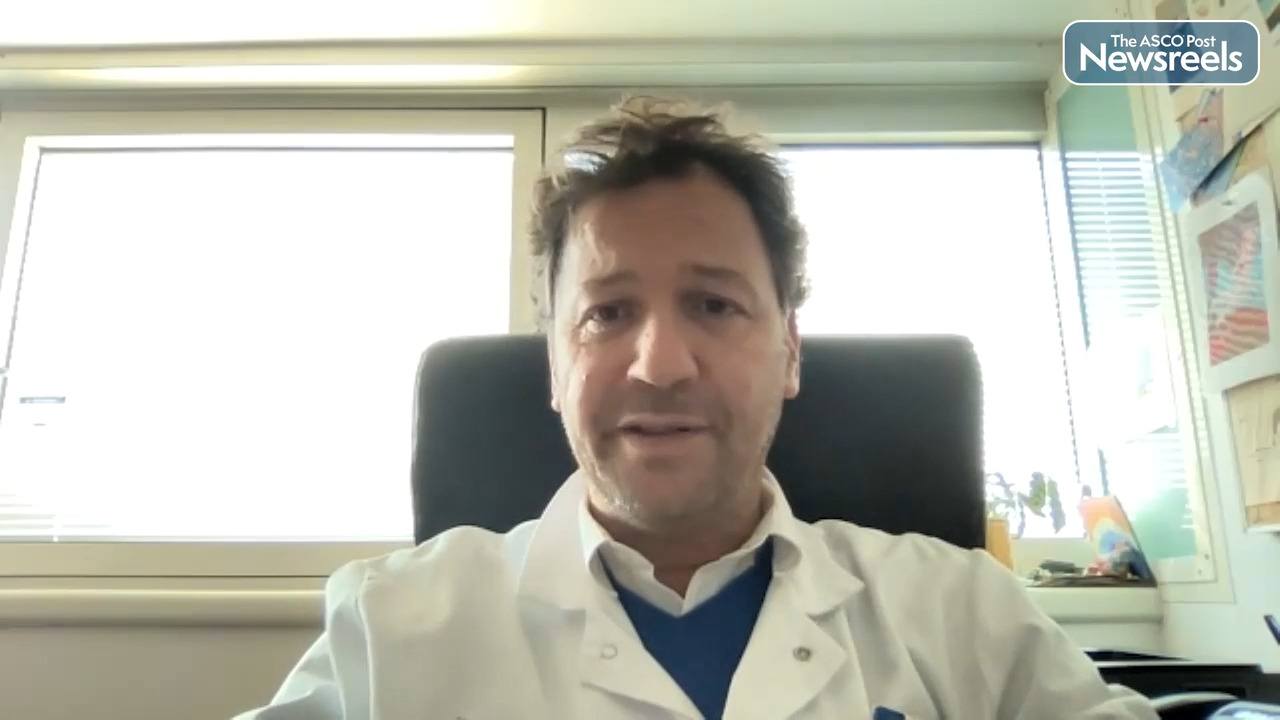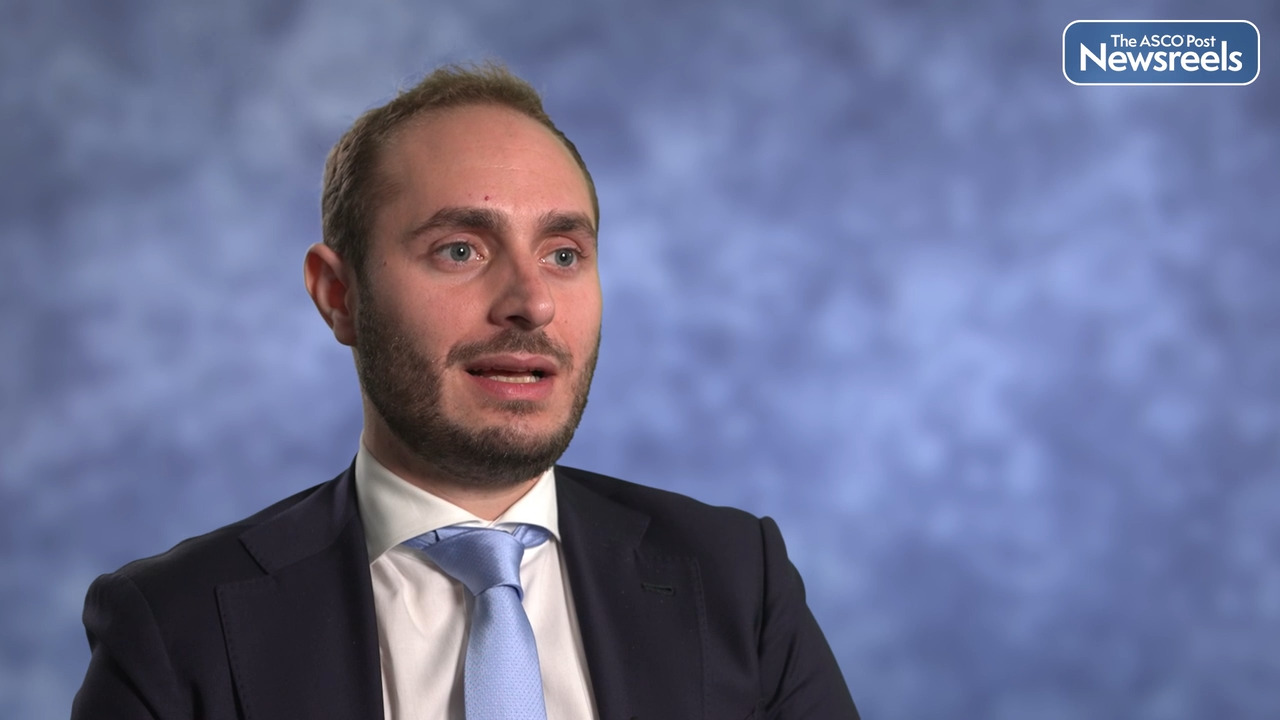Marinde J.G. Bond, PhD Candidate, on Colorectal Liver Metastases: FOLFOX/FOLFIRI, Bevacizumab, and Panitumumab
ESMO Congress 2022
Marinde J.G. Bond, PhD Candidate, of the University Medical Center, Utrecht, discusses phase III findings from the CAIRO5 study of the Dutch Colorectal Cancer Group, the first such trial in defined subgroups of patients with initially unresectable colorectal cancer liver metastases and left-sided and RAS/BRAF V600E wild-type tumor. The study compared FOLFOX/FOLFIRI plus either bevacizumab or panitumumab (Abstract LBA21).
Transcript
Disclaimer: This video transcript has not been proofread or edited and may contain errors.
CAIRO5 is the first randomized controlled phase III trial in which the currently most effective systemic regimens were compared in defined subgroups of patients with initially unresectable colorectal cancer liver metastasis, as defined by a liver expert panel. Patients with RAS/BRAF-mutated and/or a right-sided primary tumor were randomized between dub chemotherapy and triplet chemotherapy, both plus bevacizumab. The results of this group were presented at ESCO annual meeting last June and patients with RAS/BRAF wild-type, and left-sided primary tumors were randomized between doublet chemotherapy and either bevacizumab or panitumumab. I presented the results of this group, which evaluated 230 patients.
A novel aspect of this study is the Liver Expert Panel, which evaluates unresectability at baseline, according to redefined criteria, and resectability every 2 months during follow up, the Liver Expert Panel consisted of 15 liver surgeons and three abdominal radiologists. The panel procedure was as follows. The CT scans were uploaded and reviewed by one abdominal radiologist and then by three liver surgeons. If no consensus among these three liver surgeons existed, then two additional surgeons were invited and the final decision was made by majority votes. Consensus on unresectability at baseline was present in 67% and during follow up in 42%.
Based on these results and the results of in-depth analysis, we can conclude that the use of a liver expert panel is feasible and allows the selection of an increased number of patients who are eligible for local treatments with curative intent. The primary endpoint was progression-free survival and the median progression-free survival in the bevacizumab of arm, 10.6 months, and in the panitumumab arm, 10.3 months. This was not significantly different, with a hazard ratio of 1.12 and the p-value of 0.44. Panitumumab was associated with more grade 3 or higher toxicity, which mainly consisted of skin toxicity and diarrhea. Panitumumab significantly increased response rate and depth of response, which, however, did not translate into an increased local treatment rate of liver metastasis.
In conclusion, the median progression free survival was not different between the use of either bevacizumab or panitumumab to FOLFOX or FOLFIRI. The local treatment rate was not significantly different either despite the higher response rate and higher depth of response. Considering the results of previous anti-EGFR trials, the data and overall survival should be weighted before we can draw a final conclusion about the use of anti-EEGR therapy in patients with initially unresectable colorectal cancer liver metastasis and their-left sided and RAS/BRAF wild-type tumor.
Related Videos
The ASCO Post Staff
Charles Swanton, PhD, of The Francis Crick Institute, discusses a newly discovered mechanism of action for air pollution–induced non–small cell lung cancer in which particles linked to climate change appear to promote cancerous changes. The finding might pave the way for new potential approaches to lung cancer prevention and treatment (Abstract LBA1).
The ASCO Post Staff
Neal D. Shore, MD, of Carolina Urologic Research Center/Genesis Care, discusses new data from the ENACT trial, which showed that patients with prostate cancer and the RNA biomarkers PAM50 and AR-A were likely to have better outcomes with enzalutamide treatment. The results suggest that such RNA biomarkers may help to identify patients who may benefit from enzalutamide treatment compared with active surveillance (Abstract 1385P).
The ASCO Post Staff
Richard S. Finn, MD, of the Geffen School of Medicine at the University of California, Los Angeles, discusses primary phase III results from the LEAP-002 study of pembrolizumab, an anti–PD-1 therapy, plus lenvatinib, the orally available multiple receptor tyrosine kinase inhibitor, vs lenvatinib monotherapy in patients with advanced hepatocellular carcinoma (Abstract LBA34).
The ASCO Post Staff
Julien Taïeb, MD, PhD, of Paris Descartes University, discusses phase II results from the SAMCO-PRODIGE 54 trial, which shows the efficacy and safety of avelumab in the second-line treatment of patients with deficient DNA mismatch–repair microsatellite-instability metastatic colorectal cancer. According to Dr. Taïeb, the study indirectly suggests this population should be treated as soon as possible with an immune checkpoint inhibitor (Abstract LBA23).
The ASCO Post Staff
Antonio Marra, MD, of Memorial Sloan Kettering Cancer Center, discusses a mutational signature analysis that reveals patterns of genomic instability linked to resistance to endocrine therapy with or without CDK4/6 inhibition in patients with estrogen receptor–positive/HER2-negative metastatic breast cancer (Abstract 210O).
